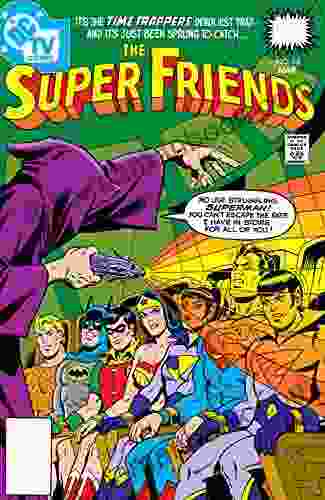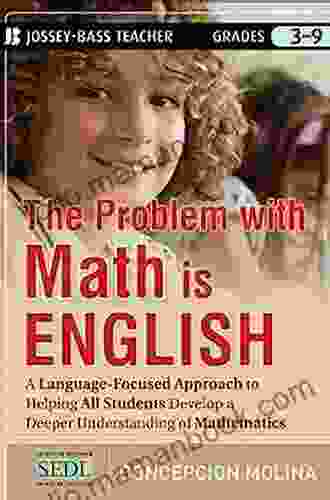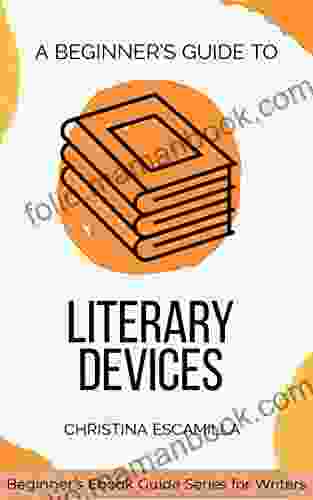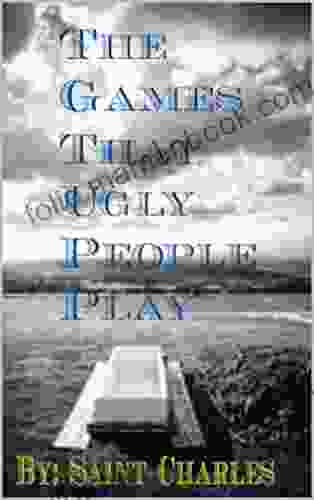Language-Focused Approach: A Comprehensive Strategy for Fostering Deeper Understanding in All Students

In today's rapidly evolving educational landscape, it is imperative to explore innovative approaches that empower all students to develop deep understanding and critical thinking skills. One such approach is the Language-Focused Approach (LFA),a comprehensive strategy that places language at the forefront of student learning and empowers them to actively engage with the content they encounter.
Core Principles of the Language-Focused Approach
The LFA is grounded in the belief that language is not merely a medium of communication but a powerful tool for thinking, problem-solving, and comprehension. By focusing on language development, students are equipped to express their thoughts and ideas more effectively, critically analyze information, and construct well-reasoned arguments.
4.3 out of 5
| Language | : | English |
| Paperback | : | 38 pages |
| Item Weight | : | 4 ounces |
| Dimensions | : | 8.5 x 0.09 x 11 inches |
| File size | : | 4724 KB |
| Text-to-Speech | : | Enabled |
| Screen Reader | : | Supported |
| Enhanced typesetting | : | Enabled |
| Word Wise | : | Enabled |
| Lending | : | Enabled |
| Print length | : | 305 pages |
The LFA encompasses three core principles:
- Language as a Central Tool: Language is not an afterthought but an integral part of the learning process. Students are encouraged to use language to explore concepts, ask questions, and reflect on their understanding.
- Explicit Language Instruction: Students receive explicit instruction on language skills, including vocabulary building, grammar, and sentence structure. This instruction is integrated into content learning, allowing students to apply their language skills in meaningful contexts.
- Interactive Learning Environment: The LFA fosters an interactive learning environment that encourages students to engage with each other and with the content through discussions, group projects, and collaborative writing.
Benefits of the Language-Focused Approach
The LFA has been shown to have numerous benefits for students, including:
- Improved Content Comprehension: By focusing on language development, students gain a deeper understanding of content. They are able to identify key concepts, make inferences, and draw connections between new information and their prior knowledge.
- Enhanced Critical Thinking Skills: The LFA fosters critical thinking skills by encouraging students to analyze information, evaluate arguments, and make informed decisions. They learn to question assumptions, identify bias, and form their own opinions based on evidence.
- Increased Language Proficiency: The LFA explicitly addresses language skills, leading to increased proficiency in vocabulary, grammar, and sentence structure. This enhanced language ability benefits all aspects of student learning.
- Empowerment for All Students: The LFA is designed to benefit all students, regardless of their background or learning style. By providing explicit language instruction and creating an interactive learning environment, the LFA levels the playing field and empowers all students to succeed.
Implementing the Language-Focused Approach
Implementing the LFA requires a commitment from educators and administrators to create an environment that fosters language development. Key steps include:
- Professional Development for Educators: Educators need training in the principles of the LFA and strategies for implementing it in their classrooms.
- Curriculum Alignment: The curriculum should be designed to integrate language instruction and provide opportunities for students to practice their language skills.
- Assessment and Feedback: Assessments should focus on students' use of language and ability to comprehend and analyze content.
- Collaboration with Families and the Community: Schools should partner with families and the community to support students' language development outside of the classroom.
Examples of the Language-Focused Approach in Action
There are numerous examples of the LFA being implemented in schools and classrooms around the world. Some common practices include:
- Interactive Discussions: Teachers lead guided discussions that prompt students to ask questions, discuss ideas, and provide evidence to support their claims.
- Collaborative Writing: Students work together to write essays, reports, and other texts. This process encourages them to share ideas, revise their writing, and improve their language skills.
- Concept Mapping: Students create visual representations of concepts and relationships. This helps them organize their thoughts, identify key ideas, and improve their comprehension.
- Vocabulary Enrichment: Teachers introduce new vocabulary words and provide explicit instruction on their meaning and usage. Students are encouraged to use these words in their writing and speaking.
The Language-Focused Approach is a powerful tool that can empower all students to develop deeper understanding and critical thinking skills. By placing language at the forefront of learning, teachers can create an environment that fosters student engagement, promotes collaboration, and prepares students to succeed in the 21st century. As educators, we have a responsibility to embrace innovative approaches like the LFA that help all students reach their full potential.
4.3 out of 5
| Language | : | English |
| Paperback | : | 38 pages |
| Item Weight | : | 4 ounces |
| Dimensions | : | 8.5 x 0.09 x 11 inches |
| File size | : | 4724 KB |
| Text-to-Speech | : | Enabled |
| Screen Reader | : | Supported |
| Enhanced typesetting | : | Enabled |
| Word Wise | : | Enabled |
| Lending | : | Enabled |
| Print length | : | 305 pages |
Do you want to contribute by writing guest posts on this blog?
Please contact us and send us a resume of previous articles that you have written.
 Top Book
Top Book Novel
Novel Fiction
Fiction Nonfiction
Nonfiction Literature
Literature Paperback
Paperback Hardcover
Hardcover E-book
E-book Audiobook
Audiobook Bestseller
Bestseller Classic
Classic Mystery
Mystery Thriller
Thriller Romance
Romance Fantasy
Fantasy Science Fiction
Science Fiction Biography
Biography Memoir
Memoir Autobiography
Autobiography Poetry
Poetry Drama
Drama Historical Fiction
Historical Fiction Self-help
Self-help Young Adult
Young Adult Childrens Books
Childrens Books Graphic Novel
Graphic Novel Anthology
Anthology Series
Series Encyclopedia
Encyclopedia Reference
Reference Guidebook
Guidebook Textbook
Textbook Workbook
Workbook Journal
Journal Diary
Diary Manuscript
Manuscript Folio
Folio Pulp Fiction
Pulp Fiction Short Stories
Short Stories Fairy Tales
Fairy Tales Fables
Fables Mythology
Mythology Philosophy
Philosophy Religion
Religion Spirituality
Spirituality Essays
Essays Critique
Critique Commentary
Commentary Glossary
Glossary Bibliography
Bibliography Index
Index Table of Contents
Table of Contents Preface
Preface Introduction
Introduction Foreword
Foreword Afterword
Afterword Appendices
Appendices Annotations
Annotations Footnotes
Footnotes Epilogue
Epilogue Prologue
Prologue Travel On The Dollar
Travel On The Dollar Walt Dillard
Walt Dillard Louise Allen
Louise Allen Julia Donaldson
Julia Donaldson Foong Kwin Tan
Foong Kwin Tan Zeb Wells
Zeb Wells Alan J Harrison
Alan J Harrison R C Sherriff
R C Sherriff John Pirillo
John Pirillo Tim Severin
Tim Severin Lb Sedlacek
Lb Sedlacek Maryse Meijer
Maryse Meijer Fernando Espinoza
Fernando Espinoza Ian Mcgrath
Ian Mcgrath Bob Woodward
Bob Woodward Kg Stiles
Kg Stiles Paulo Coelho
Paulo Coelho Thomas Cleary
Thomas Cleary Angela Grassi
Angela Grassi Thankgod Adoyi Ocheme
Thankgod Adoyi Ocheme
Light bulbAdvertise smarter! Our strategic ad space ensures maximum exposure. Reserve your spot today!

 Boris PasternakPoems Seven: New and Complete Poetry - A Journey Through the Artistry of...
Boris PasternakPoems Seven: New and Complete Poetry - A Journey Through the Artistry of... Nathaniel PowellDavid Bowie: Little People, Big Dreams - A Captivating Journey into the Life...
Nathaniel PowellDavid Bowie: Little People, Big Dreams - A Captivating Journey into the Life... Gustavo CoxFollow ·3.9k
Gustavo CoxFollow ·3.9k Brent FosterFollow ·14.2k
Brent FosterFollow ·14.2k Beau CarterFollow ·19.5k
Beau CarterFollow ·19.5k Max TurnerFollow ·19.5k
Max TurnerFollow ·19.5k Thomas HardyFollow ·16.7k
Thomas HardyFollow ·16.7k Alec HayesFollow ·18.4k
Alec HayesFollow ·18.4k William PowellFollow ·2.5k
William PowellFollow ·2.5k Curtis StewartFollow ·7.4k
Curtis StewartFollow ·7.4k

 Dean Cox
Dean CoxHow to Make Decisions Easily & Effortlessly: The...
The Different Types of Decisions There...

 Gustavo Cox
Gustavo CoxThe End of World War II and the Birth of Baseball's...
The end of...

 Patrick Rothfuss
Patrick RothfussThe Dantes: An 11-Family Saga of Billionaires, Soulmates,...
The Dantes is an epic family saga that follows...

 Dylan Mitchell
Dylan MitchellSuper Friends: The Animated Adventures That Defined a...
In the vibrant landscape of American...

 Jamal Blair
Jamal BlairCollege For Students With Disabilities: We Do Belong
College can be a...
4.3 out of 5
| Language | : | English |
| Paperback | : | 38 pages |
| Item Weight | : | 4 ounces |
| Dimensions | : | 8.5 x 0.09 x 11 inches |
| File size | : | 4724 KB |
| Text-to-Speech | : | Enabled |
| Screen Reader | : | Supported |
| Enhanced typesetting | : | Enabled |
| Word Wise | : | Enabled |
| Lending | : | Enabled |
| Print length | : | 305 pages |










